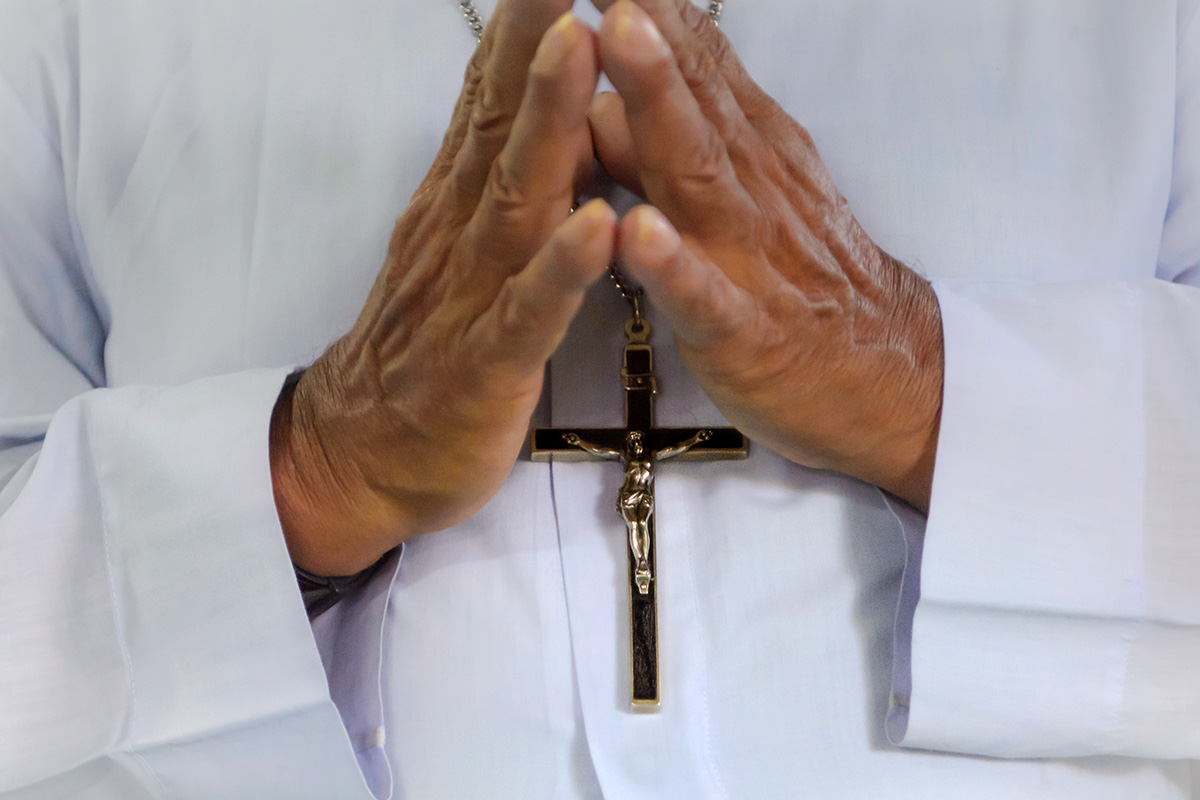Pope Francis will lead an open-air mass Friday for around 100,000 Catholics in Bangladesh, which is grappling with a rise in Islamist extremism and a massive influx of Rohingya refugees from neighbouring Myanmar.
The head of the Catholic Church will also meet refugees in Dhaka, a day after urging the world to take "decisive measures" to resolve a crisis that has forced more than 620,000 Rohingya Muslims to flee to Bangladesh from neighbouring Myanmar.
Francis arrived Thursday from Myanmar, where he walked a diplomatic tightrope, staying away in public from allegations that the country's army is waging an ethnic cleansing campaign against the Rohingya despite pressure to confront the incendiary issue.
Shortly afterwards, he praised overcrowded and poor Bangladesh for giving refuge to the Rohingya refugees who have flooded in since a military crackdown in their native Rakhine state in August, and urged the world to help.
"This has been done at no little sacrifice. It has also been done before the eyes of the whole world," he said, calling on other countries to offer "immediate material assistance to Bangladesh in its effort to respond effectively to urgent human needs".
Francis is the first pope to visit mainly Muslim Bangladesh in more than three decades.
He is spending three days in the country of 160 million, where a rise in Islamist extremism has seen Catholics attacked for their faith.
Christians make up less than 0.5 percent of Bangladesh's population and community leaders say some have left in recent years as it becomes more difficult to practise faith openly.
Since 2015 at least three Christians, including two converts from Islam, have been hacked to death in attacks blamed on Islamist militants.
Spread peace
Tens of thousands of Catholics have travelled to the capital hoping to catch a glimpse of the 80-year-old Argentine pontiff, who is to travel to the park for Friday's mass on a traditional cycle rickshaw.
He has established a reputation for his down-to-earth manner, vowing to stamp out extravagance among the clergy and bring the Catholic Church closer to the poor.
"I have seen popes on television, but I have never seen them in person," said Abraham Dorez, 75, who lives in a village outside Dhaka.
"I am an old man now. I hope he'll bless me and pray so that I can die in peace and go to heaven. I hope his prayers will spread peace all around the world."
Later the pope will hold a meeting with leaders of other faiths. Farid Uddin Masoud, a top Muslim cleric who will attend, said he hoped the pope would speak out for the Rohingya.
"He is respected across the globe, not by Christians alone, for being a champion of the poor and oppressed people... So we will strongly expect him to speak for the oppressed Rohingya," he told AFP.
Pope Francis will also meet 16 Rohingya refugees who have travelled to the capital from their camp, among them two children.
Although the influx has slowed, hundreds of Rohingya refugees are still crossing the border into Bangladesh from Myanmar every day, the United Nations said this week.
Many have brought stories of horrific abuses at the hands of the Myanmar military and local Buddhist mobs, including rape, arson and murder. Myanmar regards them as illegal immigrants from Bangladesh and refuses them citizenship.
"When I meet him, I would like to tell him about our plight, about how Myanmar's military tortured us, killed us, raped our women, about the kind of persecution we have been facing," 35-year-old refugee Abul Fayaz told AFP in Cox's Bazar where the camps are located.
"We want him to help us get Rohingya citizenship, ensure our safety, help us move freely to wherever we want, whenever we want and most importantly, make a way so we can say our prayers with freedom like they (Buddhists) do." – AFP
Recommended stories:
